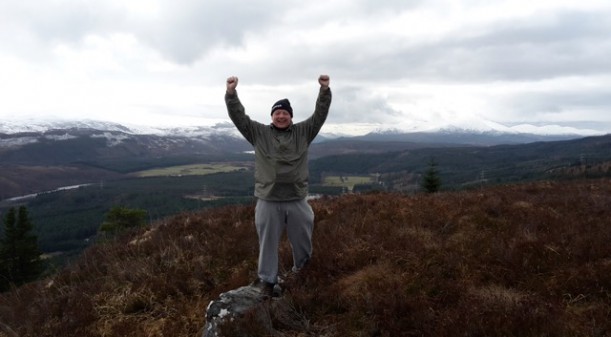90 days that changed my life

I have discovered that support from a mentor can be so powerful, life-changing even. That’s why I’m proud to be leading the Institute of Fundraising London’s Mentoring Programme. Also that’s why I’m writing this blog, because I want to shout about this brilliant mentoring programme. If you’re interested in getting involved, because you want a mentor or you want to be a mentor, then I will tell you how at the end of this blog.
9.30am, Friday 8th January 2016 – Skype call with Alan Clayton.
I asked Alan a simple question: “Will you be my mentor?” I didn’t realise this question would change my life.In my mind I wanted light and gentle mentoring. I was envisaging a phone call once a fortnight and a bit of friendly advice. I think Alan had something else in mind. He saw the significance of my request. He was thinking life-changing mentoring.So we arranged a date to meet and two weeks later I went to spend a weekend at Alan’s hotel overlooking Loch Ness. He asked me what my goals were. I said I wanted to grow my business and I also wanted to lose weight. So on the first day I defined my five-year goals and I really explored why I want to create them. Alan kept pushing me for bigger more powerful reasons why I wanted to make these changes, so I was totally fired up to make it happen.On the second day we created a plan to achieve my goals. We broke them down into one year and 90 day goals and identified simple things I could do each day.
Incredible results
Today is day 90 and I have to tell you that so much has changed in my life. I’ve lost 2 stone in weight and four inches off my waist. I’ve been to the gym 59 times in those 90 days. I’ve also walked or cycled for 74 hours. I’ve even started eating mushrooms!Also my business has changed. I have a much clearer and more powerful way of describing my business. I’m enjoying working with my clients because I’m bringing so much energy, focus and creativity and I’m delivering brilliant results. I’ve also got greater work-life balance.I’m proud of the changes I’ve made. So how did I do it? What are the fundamental elements?
Why?
It started with why. Why do I want to be fitter and healthier? Why do I want to grow my business? Alan helped me go deeper and deeper until I found reasons why that inspired me so much they filled me with excitement and motivation. I discovered reasons that I didn’t know were inside me, such as, “I want to have the energy to fulfil my dreams.” Now my reasons are saved on my desktop, so I can look at them whenever I’m feeling flat and struggling to stay on track.
Routine
I have radically changed my routine. For three days in a row I go to the gym, then I have a rest day. I email Alan every morning and evening to let him know how I’m doing. I don’t have take away meals anymore. I cook virtually every meal I eat. I don’t take taxis anymore. I walk or take public transport instead. Also I go to bed before 11 at night. Sleep is crucial. The more I do these things they become my habit. I no longer have a debate with myself about whether I’m going to the gym. I just put on my gym gear and go and I feel happier after I’ve done it.
Measuring results
I have a fitness and weight loss chart that I fill in every day. I write down how many minutes I spent at the gym, how long I walked for and I update my weight. All those figures create a brilliant graph showing my progress against my target. It’s hugely motivating to see the progress I’m making.
Support
I have a fabulous support network. Alan and my wife Araxie have been amazing. If I’m struggling I know I can ask for their support and they remind me how well I’m doing. But also I’ve received encouragement from friends, family and clients. I’ve told quite a lot of people about my goals and I find they are very encouraging and supportive.
Acknowledging myself
I’m also acknowledging myself a lot more. When I was working with Alan I said, “Whatever I do it’s never enough.” It brought tears to my eyes, because I realised how harsh it was and also that I told myself that a lot. Also I realised it was completely untrue. So Alan suggested I replace it with a different phrase. Now I tell myself, “I’m proud of me”. So when I go to the gym, “I’m proud of me”. When I do a great piece of work for a client, “I’m proud of me”. It’s having a very powerful effect because it’s really building my confidence.
You can do this too
If you’re feeling inspired by my story perhaps you want to find a mentor. Who do you respect and admire? Will you contact them and ask if they will mentor you? They might ask for you to pay a monthly fee, but what could be more important than changing your life?I believe that having a mentor is a very powerful experience, which is why I lead the Institute of Fundraising London Mentoring Programme. You can find out more about the programme here.If you’re a fundraiser based in London and you work for a charity with a turnover of less than £2 million then you can apply for a mentor here.Also we’re always looking out for new mentors, so if you’ve a fundraiser in London with two or more years experience you can apply to be a mentor here.If you’ve found this inspiring please send me an email at jonathan@remarkablepartnerships.com. It would be great to hear from you.




